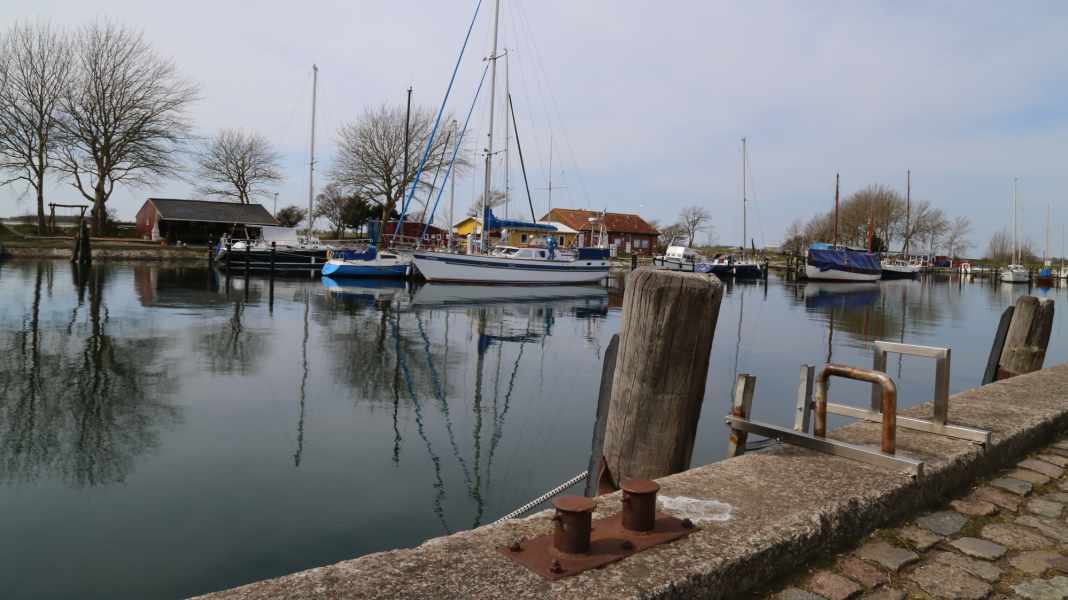Baltic Sea Protection Action Plan: Criticism in the participation process
Lasse Johannsen
· 24.06.2025

The necessary participation procedure for the implementation of the Baltic Sea Action Plan (APO) will run until 27 June. During this period, the plans for the nature conservation areas Geltinger Bucht to Schleimündung, southern Howachter Bucht and west of Fehmarn can be viewed by the public at the Schleswig-Holstein Ministry of the Environment. Comments can be submitted during this period and will be carefully considered in the subsequent decision on the authorisation.
Detailed statement on the consequences
Hafen Orth GmbH has made use of this opportunity to participate in the process and has set out in a well-founded elaboration what impact the planned nature conservation area on its doorstep will actually have on the harbour and what can still be expected in the future.
The harbour has been awarded the Blue Flag for 27 years. Nature conservation and, in particular, the sustainable protection of the Baltic Sea are important to us.
The authors of the 13-page letter, who disclose their sources and the evidence for their assumptions in a detailed footnote apparatus, point out that 80% of the added value on the island of Fehmarn is generated by tourism and water sports. This is based on a longer value chain, which includes harbours, shipyards, sailmakers, yacht technicians, winter storage operators as well as innkeepers and hotel operators.
Action plan causes existential fears
If water sports are no longer possible in a nature reserve as a result of the planned navigation ordinance, these value chains would collapse and the companies would lose their livelihoods.
From the point of view of the neighbouring port operators, the expected limited accessibility is a threat to their existence.
The background to these concerns is Section 5 of the draft state regulations for the "Baltic Sea area west of Fehmarn" nature reserve. The provision regulates "Authorised activities" and refers to a navigation regulation. The expert recommendation for such a regulation is a ban on navigation from 15 September to 15 April. "For water sports enthusiasts," says the statement from Hafen Orth GmbH, "the establishment of a year-round navigable corridor on the western boundary of the protected area in the area of the above-mentioned positions is of great importance."
Navigation bans within the water sports season
According to the operators of Orth's municipal harbour and recreational boat harbour, the times recommended in the expert reports for bans on navigation are still within the water sports season of their harbour (September to October and April) and therefore represent a significant restriction on the accessibility of the two harbours. Both ports are dormant from 1 November to 31 March. A navigation ban during this period is fully supported by the harbour operators.
Concerns about creeping expansion
The report's reference to so-called "expansion zones", which include the Orther Reede harbour, is also questionable. From the perspective of harbour operators and tourism, this term is highly relevant for the future of the region.
We see the danger that a future expansion of the existing nature conservation area (NSG) could be justified on the basis of insufficiently achieved monitoring targets. Such a development would have far-reaching consequences for the Orth harbour site, not only ecologically but also economically.
A future restriction of use in this area would not only have an impact on tourist use, but also on nature tourism itself, for example through bans on swimming or fishing or closed paths.
More on the topic:
- Baltic Sea Protection Action Plan: Participation procedure opened (June 2025)
- Interview with Schleswig-Holstein's Environment Minister Tobias Goldschmidt (May 2025)
- Start of the information events (April 2025)
- State government informs about the Baltic Sea Protection Action Plan (March 2025)
- Report on the Baltic Sea Protection Action Plan (October 2024)

